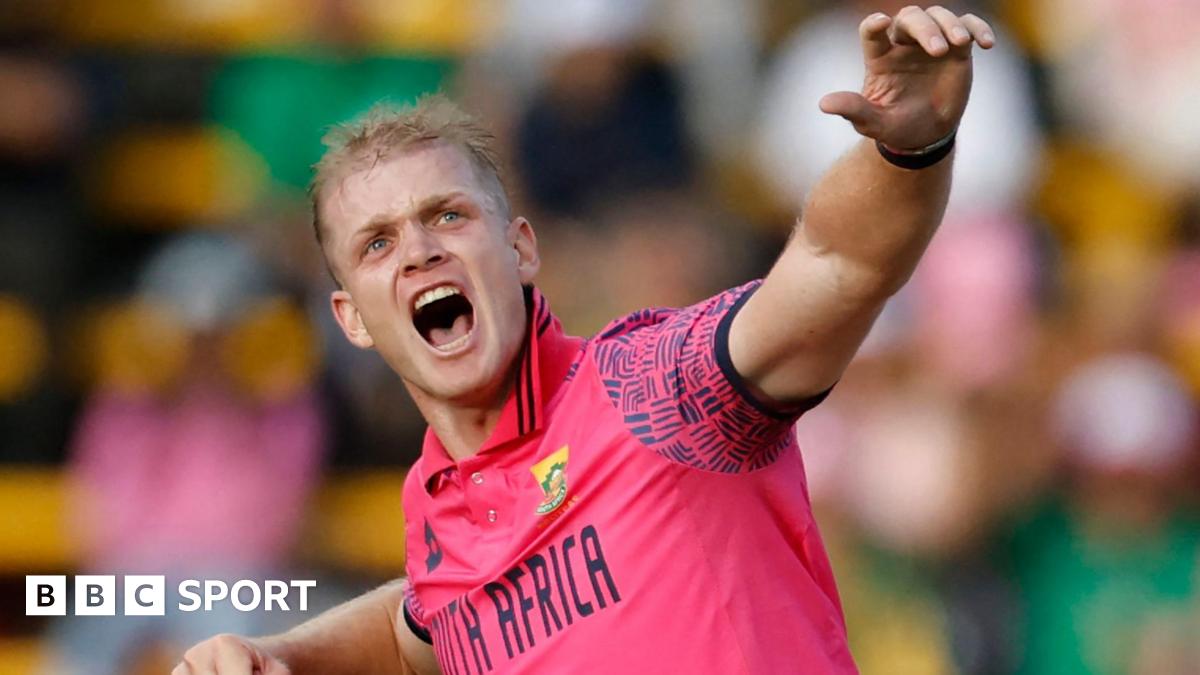We should support England’s female cricketers – but only when they truly deserve it | Emma John

Melbourne’s cricket ground is famed for its size. It has never seemed larger than it did last week, when England’s fielders were chasing the ball all over its vast green sward. Both on the ground and in the air the ball just kept escaping them, as Australia’s batters scored the first, then the second, ever centuries by women at their country’s oldest (and biggest) sporting venue.
The third women’s Test held at the MCG was certainly a historic occasion, but not in the way England would have hoped. The tourists succumbed to the first ever whitewash in a women’s Ashes: they finished without a single point in the multi-format series, having lost all seven of their matches.
England v Australia is meant to be one of the great showcases of women’s cricket, and this edition was hyped accordingly. The sides are ranked one and two in the world. Their meetings contain a juicy beef, cooked up by decades of rivalry between both the women’s and the men’s sides. And their last encounter, in summer 2023, had turned into a thriller as Heather Knight’s England came back from the seeming dead to draw the series.
This winter, there has been no such Lazarus effect. Australia landed a killer punch in the very first game, completing their run chase with 11 overs to spare, the equivalent of having the fight stopped with four rounds to go. England never got back up off the mat. The series was lost at the first opportunity, and many of the defeats were embarrassingly one-sided.
Such an epic humbling in the land of Lillee and Thomson, Warne and Waugh, Johnson and Starc, is nothing new to English cricket. The women’s efforts over the past three weeks have earned a place in the pantheon of disastrous Ashes tours established by their male counterparts, several of them in the past 20 years. It easily holds its own against the 2006-07 whitewash led by Andrew Flintoff, or the infamous Covid collapse of 2021-22. Perhaps it can’t quite live up to Alastair Cook’s 2013-14 “Pomnishambles”. But the batters do convey the same broken, tortured look as they head to and from the crease.
An Ashes tour is a brutal sight when it goes this wrong. The pressure of the contest is unrelenting, its conveyor belt of fixtures an industrial accident waiting to happen. Even as they were caught in the teeth of the machine that would mash them to a pulp, this England side remained in denial about what was happening to them. Others might call this tour a horror show, a bloody mess: they kept insisting it wasn’t as bad as it looked.
Ten-nil down on points after five matches, coach Jon Lewis announced that his team were “more competitive than the scoreline suggests”. And that wasn’t even the weirdest thing he said. Responding to criticism of his players’ failures in athleticism, Lewis told the assembled media that the real cause of their performance gap was down to Australia’s warmer climate, which encouraged their love of sport: it was this “cultural difference” that gave them the physical advantage. Cricket fans are used to blaming the weather for adverse results. But that’s usually because rain has scuppered a chance of victory – not because Sydneysiders get more vitamin D than everyone else. Lewis’s fatalistic assertion was proof that England had, collectively, lost their mind.
The claim appears to be a refutation of professionalism in sport. What is the point of athletes dedicating themselves to full-time training if sporting outcomes are decided by the amount of time you spent outside as a kid? And yet these England women are the most professional ever to wear the three lions on their caps. They are paid £100,000 a year to train full time, and they are one of the few international women’s teams whose employers pay them the same match fees as their male counterparts. Their backroom staff are so well resourced that the only cricket team that bears comparison is, in fact, Australia’s. If their opposition are more agile and athletic than them, there is a failure either in what that staff are providing, or how the players are implementing it. It’s perfectly true that sometimes one team is just a lot better than another. Australia’s women went undefeated in T20 series for six years – a streak only broken in last year’s World Cup – and this current side is not just one of cricket’s best ever teams but one of the greatest in sport, full stop. England have not prevailed in the Ashes in over a decade.
But Australia aren’t the only team that have caused England to go to pieces in recent years. A repeated pattern has emerged since the side’s semi-final defeat at the 2022 Commonwealth Games – they run rampant against weaker oppositions (witness December’s mammoth victory over South Africa), but choke when they meet unexpected resistance.
Last autumn they lost their heads, and a place at a T20 World Cup final, against West Indies. Knight, their captain, insisted they hadn’t become a bad side “because we played poorly in 10 overs”. But those were the most important 10 overs they had played all year. There was a sense, even then, that England were inclined to let themselves off the hook a little too easily.
after newsletter promotion
Until recently, many have been understandably reluctant to subject England’s female cricketers to the same levels of criticism the men routinely receive. They appreciate that women’s sport, many decades behind in its development, needs support to achieve gender parity, rather than the judgment and even ridicule it once received.
But sport is only compelling when it is competitive. The England women’s team mantra is “inspire and entertain”, and not even their most ardent fans would claim they have achieved either on this tour.
The captain and coach’s apparent inability to recognise and deal with their team’s major failings suggests a far bigger problem than choosing the right “brand” of cricket to play. England’s well-funded national setup appears to have unintentionally created an environment where a self-deluding narrative and lack of outside competition for places invites complacency and stymies progress. Professionalism means more than just being paid to play, as Australia have very much proved.
Related
‘Listen from one ear, ignore from the other’: Former India…
India's Rohit Sharma and Mohammed Shami (AP Photo) NEW DELHI: Former wicketkeeper-batter Syed Kirmani has expressed his opinion that experienced fast bowler Mo
India faces New Zealand in budding rivalry at Champions Trophy…
State AlabamaAlaskaArizonaArkansasCa
ICC and Unilever announce landmark partnership on International Women’s Day…
The two-year partnership, kicking off at this year’s Women’s Cricket World Cup in India and running until the end of 2027, marks the world cricket governing
IPL 2025: Mumbai Indians sign Corbin Bosch as replacement for…
Mumbai Indians have signed South Africa all-rounder Corbin Bosch as a replacement for his injured countryman Lizaad Williams for this year's Indian Premier Leag











